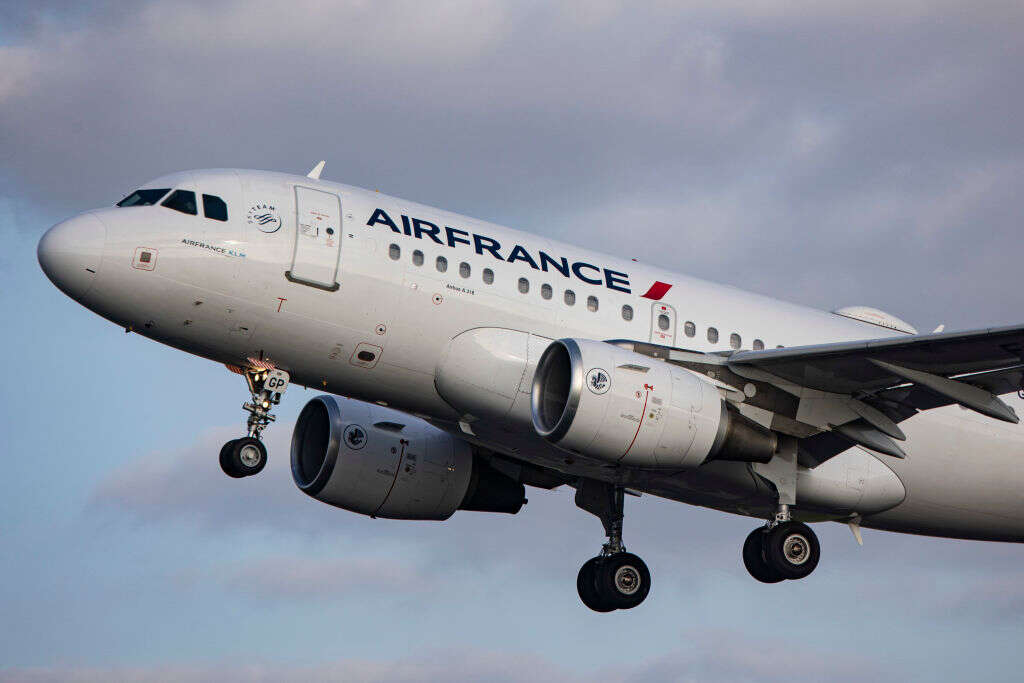

- Air France-KLM has sold a €1bn ($1.1bn) two-tranche sustainability-linked bond to help it decarbonise.
- The bond’s key performance indicator is based on a reduction in emission intensity of 10% by 2025 and 30% by 2030.
- But with investors still clamouring for green bonds from Airport Authority Hong Kong, greenwashing in the industry remains a concern.
Not that it needs pointing out, but the airline industry is not the most environmentally attuned. It is generally accepted that the sector is responsible for around 3.5% of global carbon dioxide emissions.
For context, the most frequent fliers constitute only 1% of the world’s population, but account for more than half of the total carbon dioxide emission from passenger air travel.
As such the sector has been under pressure to embrace sustainability funding, or rather the price benefits of green funding, as a means to clean up its act.
Early attempts barely got off the ground. The nadir emerged a year ago, in January 2022, when Airport Authority Hong Kong (AAHK), the operator of Hong Kong International Airport, raised $3bn from a four-tranche bond sale that included a green $1bn 4.75% 2028 portion.
The airport had published a detailed sustainable finance framework that outlined plans for a “large-scale transition to LED lighting and optimisation of cooling arrangements” alongside airside vehicle electrification, pollution control, renewable energy, water and waste-water management, and climate change adaptation.
The airport’s framework was signed off by Sustainalytics and on the day that the bond priced, AAHK was advertising for a manager of sustainability to “manage the external communications of the authority’s environmental and sustainability strategies, initiatives and performance”.
All good news. But the remainder of the bond proceeds – all $2bn of them – were to be used to build a third runway at Chek Lap Kok International Airport.
Yearly emissions from the airport are already equivalent to three coal plants according to Airport Tracker, an online tool that maps the climate impact of 1,300 airports, and the new runway is equivalent, AAHK itself says, “to building a new airport next to the existing one”.
More to the point, the $1.4bn 3.8km project would threaten the habitat of the last Chinese white dolphins that remain in Hong Kong’s waters. No wonder, then, that Lucie Pinson, director of Paris-based think-tank Reclaim Finance, called it “pure high-flying greenwashing”.
How to decarbonise
Fast forward a year and the landscape seems very different. Earlier this month, 9 January, French-Dutch airline operator Air France-KLM sold a €1bn ($1.1bn) two-tranche sustainability-linked bond (SLB) to help it decarbonise.
It sold a €500m 3.3-year at 7.250% and a €500m 5.3-year at 8.125%. Although the airline is unrated, an oversubscription of 2.6 times allowed the pricing on each tranche to be tightened from initial price thoughts as well as the size increased from €300m.
What is significant about the deal is both the material nature of the key performance indicator (KPI) on the deal as well as the step-up on the bond should it not hit its targets.
Air France-KLM intends to reduce emission intensity (measured by carbon dioxide per revenue tonne-kilometre) by 10% by 2025 and 30% by 2030. The targets have been set with a baseline of 2019 – before the travel disruption caused by the Covid-19 pandemic.
This applies not only to Scope 1 emissions covering the direct activities of the group but also Scope 3 upstream emissions from fuel production which, the company says, which covers 92% of the group’s footprint.
As well as a “very good” second-party opinion from Moody’s, one sign of the airline’s seriousness is that the targets have been approved by independent regulatory body Science Based Targets initiative (SBTi) as consistent with the Paris Agreement to keep global warming below two degrees Celsius.
More to the point, the step-ups should Air France-KLM not hit its targets are significant. For the three-year, it is 75 basis points (bp) and for the five-year, it is a cumulative annual step-up of 37.5 bp.
Josephine Richardson and Stéphanie Mielnik at Stockholm-based non-profit think-tank Anthropocene Fixed Income Institute (AFII) called the bond “a positive step towards supporting its climate transition, delivering greater transparency and a commitment to reducing emissions while providing financial benefits for investors”.
Improving sustainability-linked deals
The Air France-KLM SLB is not perfect. Critics have pointed out that its reliance on emission intensity rather than absolute emissions means that the jury is still out on whether it is aligned with the Paris Agreement. More to the point, the step-up of 75bp is not an especially tough penalty given where Air France-KLM’s existing 2026s are currently trading.
In a research note, ABN Amro called the bond a “landmark” and said that it was “a positive step towards airline companies taking more responsibility”. The question is, are they likely to?
The depressing answer is probably not. Only three days before Air France-KLM issued its sustainability-linked bond, Airport Authority Hong Kong was in the market with another benchmark issue.
It sold a $3bn four-tranche deal including a $1bn five-year green portion. With almost seven times demand for the green paper, it went again at 4.75%, this despite the rise in interest rates.
Banker conversation about the bond was focused on the ending of China's Covid-19 restrictions and economic reopening, not on the disconnect between a green bond and a new runway.
The journey may have started for the industry to decarbonise, but it has a long way still to go.






